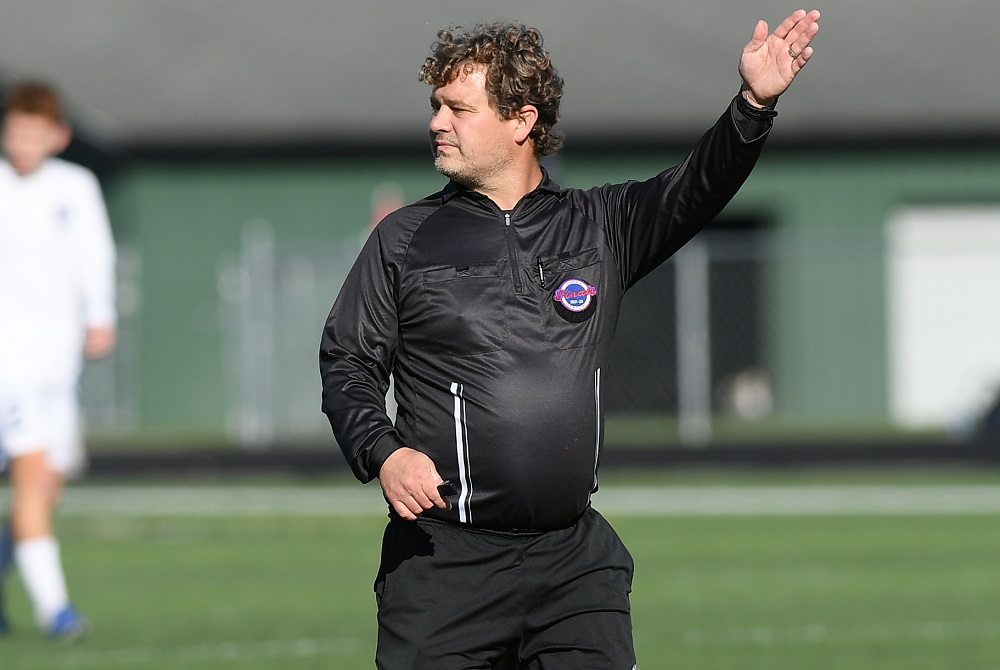
Be the Referee: Other Football Changes
September 7, 2017
This week, MHSAA assistant director Mark Uyl discusses a few final football rules in the final of a three-part series on changes in the sport for this fall.
Be The Referee is a series of short messages designed to help educate people on the rules of different sports, to help them better understand the art of officiating, and to recruit officials.
Below is this week's segment – Other Football Rules Changes - Listen
Today in our final segment of a three-part series on the football rules changes for the 2017 season, we’re going to be looking at three items:
• On passing plays, pass interference will no longer be called when the defender is simply face guarding the receiver with no contact.
• In the final two minutes of a half, the team accepting a penalty will now have the option of restarting the game clock with the snap of the ball, rather than the referee’s ready-for-play signal.
• This is the second year of an experiment in Michigan with a 40- second play clock, which starts shortly after a play is over, replacing the 25-second play clock which was always started by the referee marking the ball ready for play.
Past editions
August 31: Pop-Up Onside Kicks - Listen
August 24: Blindside Blocks - Listen

Be the Referee: Soccer Timing
By
Sam Davis
MHSAA Director of Officials
September 20, 2022
Be The Referee is a series of short messages designed to help educate people on the rules of different sports, to help them better understand the art of officiating, and to recruit officials.
Below is this week's segment – Soccer Timing - Listen
One of the biggest complaints people make about professional soccer is never knowing how much time is really left in the game. The clock counts up from zero, and the referee can add time at their discretion.
But that’s not the case in high school soccer.
To start with, halves are 40 minutes, not 45. The clock starts at 40 and counts down. And when players are injured and the ball is not in play, the clock will stop and then restart when action is ready to continue.
In the last five minutes of the game, the clock stops for substitutions by the leading team, so a coach can’t stall by sending in a new player. When the clock hits zero and the buzzer sounds … the game is over. There’s no guessing how much added time there is – the end of the game is the end of the game.
Previous Editions:
Sept. 13: Volleyball Replays - Listen
Sept. 6: Switching Sides - Listen
Aug. 30: Play Clock - Listen
Aug. 23: Intentional Grounding Change - Listen

